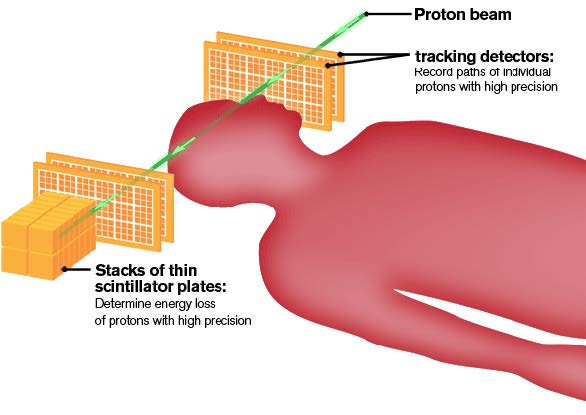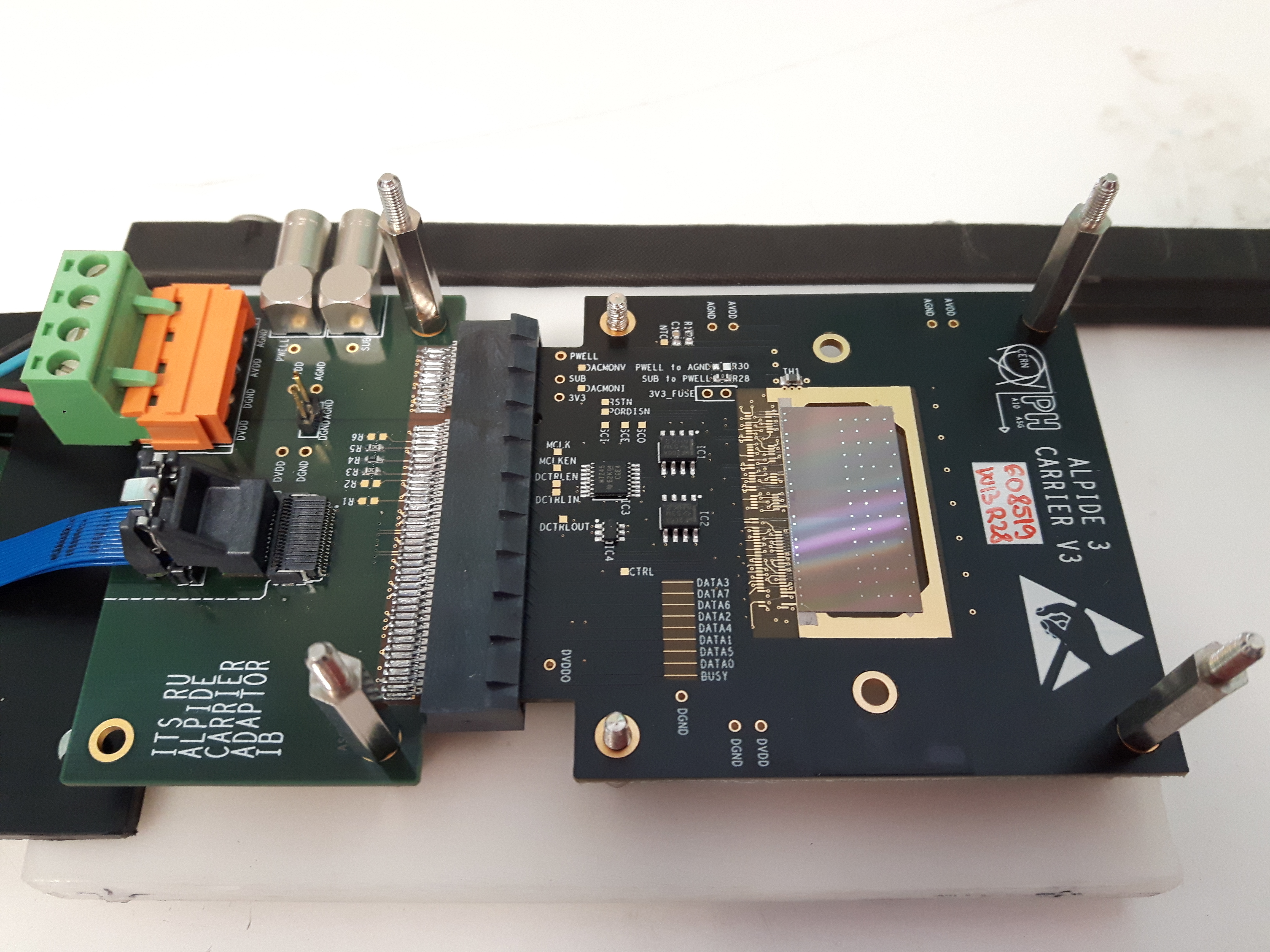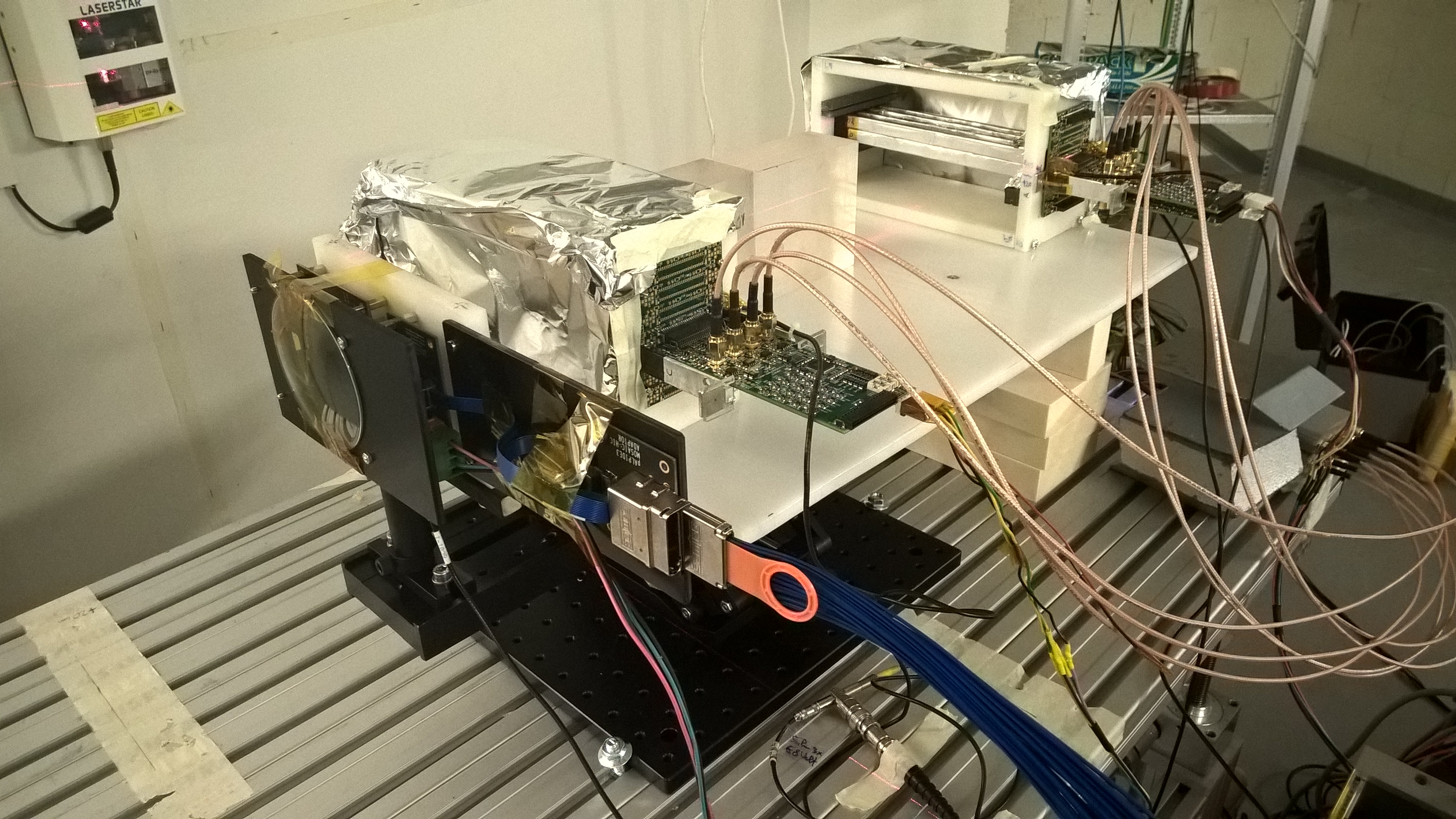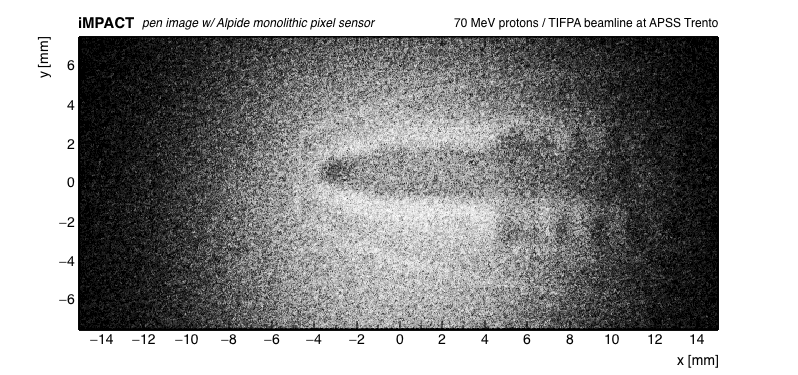iMPACT (innovative Medical Proton Achromatic Calorimeter and Tracker) is a project led by Piero Giubilato, who won an ERC consolidator grant from the European Union. The project aims to develop a high resolution and high rate (>100 kHz/cm2) proton Computed Tomography (pCT) scanner. The scanner will combine a highly-segmented range calorimeter made of PVT scintillators, for energy measurements, and a silicon pixel tracker, for trajectory reconstructions.
 For the tracker component the ALPIDE chip, a innovative monolithic silicon pixel sensor developed at CERN for the ALICE ITS upgrade, is being tested. The ALPIDE chip is an array of 1024x512 pixels 28x28 micron each and 50 micron thickness completely realized with CMOS technology. This is the first time that this chip, designed for a nuclear physics experiment, is tested also for medical applications.
For the tracker component the ALPIDE chip, a innovative monolithic silicon pixel sensor developed at CERN for the ALICE ITS upgrade, is being tested. The ALPIDE chip is an array of 1024x512 pixels 28x28 micron each and 50 micron thickness completely realized with CMOS technology. This is the first time that this chip, designed for a nuclear physics experiment, is tested also for medical applications.The pictures below show the test stand, the chip, and the results of "radiographing" a pen tip by exposing it to radiation and measuring it with the chip - the spring inside the tip is clearly visible.

Above: the Alpide chip.

Above, the test stand. Below is the image of the pen tip:

IMPACT has received funding from the European Research Council (ERC) under the European Union’s Horizon 2020 research and innovation programme (grant agreement No 649031).
-----
Tommaso Dorigo is an experimental particle physicist, who works for the INFN at the University of Padova, and collaborates with the CMS experiment at the CERN LHC. He coordinates the European network AMVA4NewPhysics as well as research in accelerator-based physics for INFN-Padova, and is an editor of the journal Reviews in Physics. In 2016 Dorigo published the book “Anomaly! Collider physics and the quest for new phenomena at Fermilab”. You can purchase a copy of the book by clicking on the book cover in the column on the right.





Comments